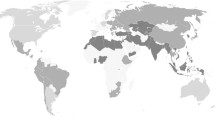Abstract
Confucian scholars should satisfy two conditions insofar as they think their theories enable Confucianism to make contributions to liberal politics and social policy. The liberal accommodation condition stipulates that the theory in question should accommodate as many reasonable conceptions of the good and religious doctrines as possible while the intelligibility condition stipulates that the theory must have a recognizable Confucian character. By and large, Joseph Chan’s Confucian perfectionism is able to satisfy the above two conditions. However, contrary to Chan and many other Confucian scholars, I argue that any active promotion of Confucianism will violate the liberal accommodation condition. I propose the “wide view of moderate perfectionism,” which enables Confucianism to shed light on a wide range of political and social issues without promoting Confucianism actively. Thus, I present a new approach to the long-standing question of how Confucianism may improve political and social development in a liberal society.
Similar content being viewed by others
References
Angle, Stephen. 2012. Contemporary Confucian Political Philosophy: Toward Progressive Confucianism. Cambridge: Polity.
______. 2014. “Sages and Self-Restriction: A Response to Joseph.” Philosophy East and West 64: 795–798.
Chan, Joseph. 2000. “Legitimacy, Unanimity, and Perfectionism.” Philosophy & Public Affairs 29: 5–42.
______. 2014. Confucian Perfectionism: A Political Philosophy for Modern Times. Princeton: Princeton University Press.
______. 2015. “Reply to Ci Jiwei.” Dao: A Journal of Comparative Philosophy 14: 589–591.
Ci, Jiwei. 2015. “Review: Confucian Perfectionism: A Political Philosophy for Modern Times.” Dao: A Journal of Comparative Philosophy 14: 289–293.
Dewey, John. 1916. Democracy and Education: An Introduction to the Philosophy of Education. New York: Free Press.
Huang, Yong. 2015. “Confucianism and the Perfectionist Critique of the Liberal Neutrality: A Neglected Dimension.” Journal of Value Inquiry 49: 181–204.
Ivanhoe, Philip J. 2004. “Filial Piety as a Virtue.” In Filial Piety in Chinese Thought and History, edited by Alan K. L. Chan and Tan Sor-hoon. London and New York: Routledge.
Kim, Sungmoon. 2016. Public Reason Confucianism: Democratic Perfectionism and Constitutionalism in East Asia. New York: Cambridge University Press.
Larmore, Charles. 1996. The Morals of Modernity. Cambridge: Cambridge University Press.
Liu, Qingping. 2003. “Filiality versus Sociality and Individuality: On Confucianism as ‘Consanguinitism.’” Philosophy East and West 53: 234–250.
Liu, Shuxian 劉述先. 1992. Confucian Thought and Modernization 儒家思想與現代化. Beijing 北京: Zhongguo Guangbo Dianshi Chubanshe 中國廣播電視出版社.
Mang, Franz. 2013. “Liberal Neutrality and Moderate Perfectionism.” Res Publica 19: 297–315.
______. 2017. “Public Reason Can Be Reasonably Rejected.” Social Theory and Practice 43.2: 343–367.
Mou, Zongsan 牟宗三. 1996. The Way of Politics and the Way of Governance 政道與治道. Taipei 台北: Taiwan Xuesheng Shuju 台灣學生書局.
Nagel, Thomas. 1991. Equality and Partiality. New York: Oxford University Press.
Quong, Jonathan. 2011. Liberalism Without Perfection. Oxford: Oxford University Press.
Rawls, John. 2005. Political Liberalism. Expanded ed. New York: Columbia University Press.
Raz, Joseph. 1986. The Morality of Freedom. Oxford: Clarendon Press.
von Humboldt, Wilhelm. 1994. The Spheres and Duties of Government. Translated from the German by Joseph Coulthard Jr. Bristol: Thoemmes Press.
Waldron, Jeremy. 1993. “Religious Contributions in Public Deliberation.” San Diego Law Review 30: 817–848.
Wall, Steven. 1998. Liberalism, Perfectionism, and Restraint. Cambridge: Cambridge University Press.
Yu, Yingshi 余英時. 1996. On Modern Confucianism 現代儒學論. Hackensack, NJ: Global Publishing.
Acknowledgments
I would like to thank Joseph Chan and Ci Jiwei for their criticisms and suggestions on an earlier draft of this article. The penultimate version was presented at the Center for East Asian and Comparative Philosophy (CEACOP) at City University of Hong Kong in September 2017. I am grateful to Kim Sungmoon and other participants for their comments and questions. In addition, I should thank two anonymous referees for their incisive comments.
Author information
Authors and Affiliations
Corresponding author
Rights and permissions
About this article
Cite this article
Mang, F. Confucianism, Perfectionism, and Liberal Society. Dao 17, 29–49 (2018). https://doi.org/10.1007/s11712-017-9587-1
Published:
Issue Date:
DOI: https://doi.org/10.1007/s11712-017-9587-1




